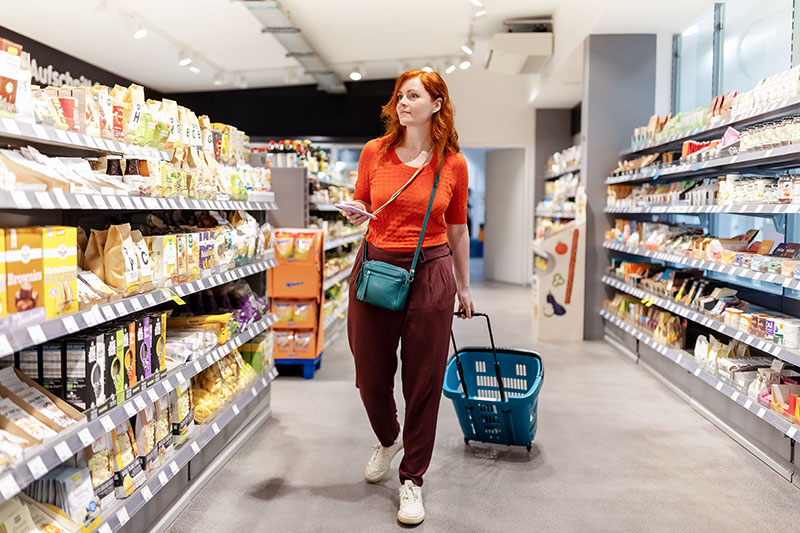
Saving Money at the Store
Saving Money at the Store
It’s no secret that grocery prices are going up. Navigating a nutritious diet while controlling your grocery budget is challenging. Following a few basic tips can help keep both bank account and nutrition on track.
Unit Price
What is unit price, and how do you calculate it?
Price ÷ Quantity = Unit price
Example:
Large container of old-fashioned oats $3.99 ÷ 42oz = $0.09 per ounce
Box of instant oatmeal packets $2.38 ÷ 15.1oz = $0.16 per ounce
- Compare unit prices among different brands offering the same product. Most often the store brand will be less expensive, but if the name brand is on sale then that may not be the case.
- There is also a perception that buying anything in bulk will save money, but again, always compare unit price (hint: this theory is not always true).
- Don’t forget to consider nutrition when looking at price. If both a bag of chips and a container of strawberries each cost $3.00, which one will give you more nutrition for that $3.00? (Answer: strawberries)
Meal Plan & Make a List
- Use the grocery store ad to help meal plan, planning meals using ingredients that are on sale. Make a list based off your meal plan and stick to it when you are at the store! The more items you buy that are not on your list, the more money you will spend at the check out.
- Follow through on your meal plan. Abandoning your plan halfway through the week will likely result in food spoiling, which is also known as wasted money.
- To prevent spoilage, plan to use fresh produce in meals early in the week. Use frozen (or longer lasting fresh) produce later in the week.
- Shop your kitchen first. Go through your pantry, refrigerator, and freezer, taking stock of what you already have that you can (or need to) use that week.
Look at the Entire Shelf
Grocery stores put their most profitable products at eye level, enticing you to purchase those. Always make sure to look at the top and bottom of the shelf, where you can typically find similar products that are less expensive (and often more nutritious).
Consider Using Grocery Pickup or Delivery
Not walking through the store is a great way to help prevent impulse purchases. Many grocery stores offer pickup for free, meaning you will spend less money by avoiding any extras.
Don’t Shop Hungry
Going to the grocery store on an empty stomach is the perfect way to end up buying much more than you need (see ‘impulse purchases’ from previous point), thus spending more money than you planned. Grocery shop after eating a meal or snack, list in hand.
Save on Protein Foods
Getting adequate lean protein is key, especially for weight loss surgery patients, so it is important to not skimp. Buy lean meats when they are on sale. Purchase extra and store in the freezer for later use. Also, don’t be afraid to go meatless more often. Plant based proteins like quinoa and beans are a nutritious, economical way to meet protein needs.
Jennifer Tveitnes, RD, LD
Boone Health Bariatrics